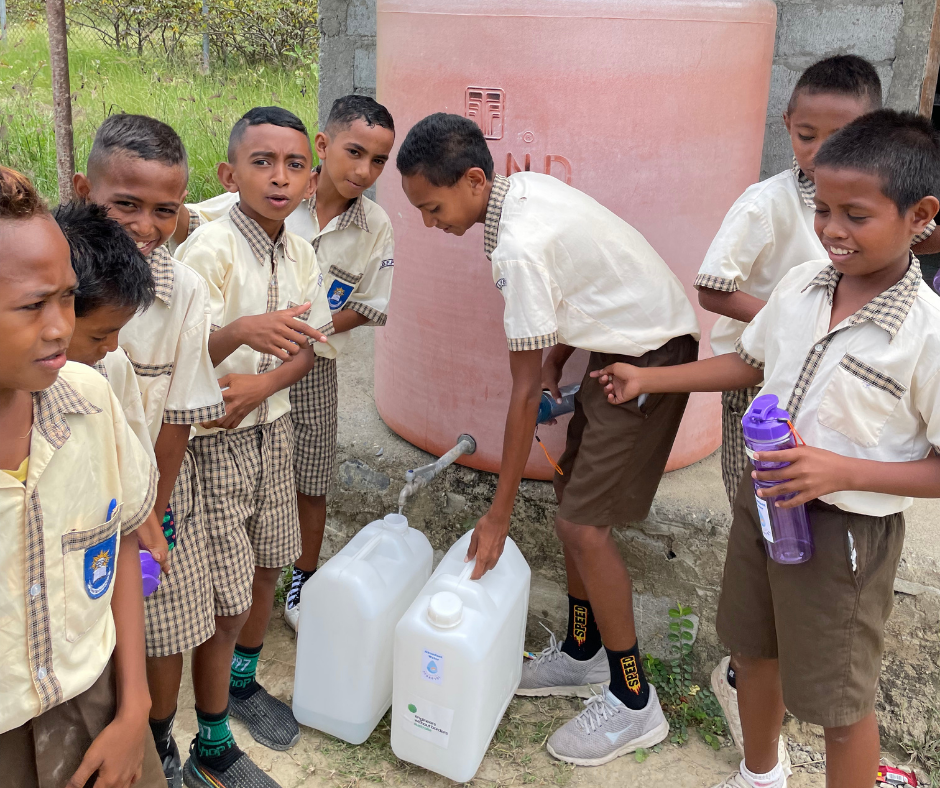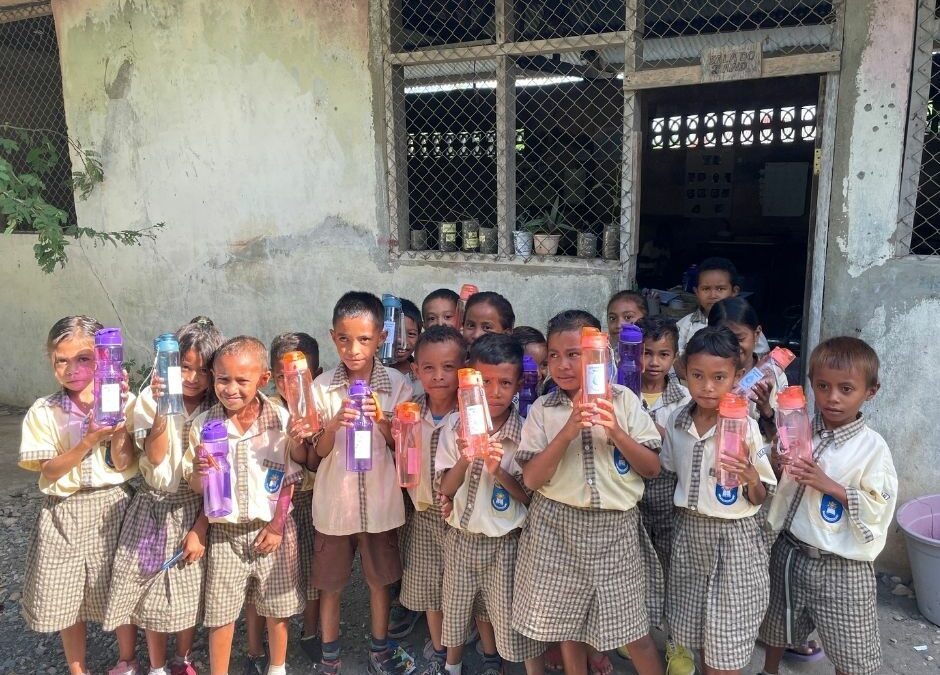Twelve months on from the devastating floods in Timor-Leste that impacted tens of thousands of households and left infrastructure severely damaged, EWB has been working with communities to support recovery and longer-term resilience. The ability to access clean water has been a key need, and EWB has been working on a project with the ANU College of Engineering and Computer Science and local Timor-Leste NGO Abundant Water that aims to improve the the water security and health outcomes for 8000 to 9000 individuals in rural Timor-Leste. Through the use of low-cost ceramic water filters, the initiative focuses on households and schools, and in March 2022 the first filters were installed in a school in the Manatutu district in Timor-Leste.
Despite investment in water infrastructure, water systems in Timor-Leste are facing declines in quantity, quality and reliability due to contemporary stresses created by climate change, population increases, changes in agricultural practices, and natural hazards. While water infrastructure is typically managed at a community or district level, a lack of quantity, reliability and resilience result in multiple sources being used, leading to contaminated water being consumed at the household level. One recent report found 92% of rural communities surveyed had contamination at some point in their water supply system and only 34% had 9-12 months of adequate spring water supply.
Ceramic filters for resilience and security
To ensure clean water at point of consumption – regardless of its source – ceramic water filters can provide additional resilience and security. These use mechanical treatment to capture bacteria and other contaminants to the size of a micron. This can be up to 99% effective at bacterial removal, in turn reducing the prevalence of ill-health from water-borne diseases and providing an effective last line treatment option.
Clean water in schools
In 2018, Abundant Water commenced installation and support of these filters in Timor-Leste, working closely with schools and communities and building a network of local vendors for filter distribution and support. This project will work to expand the use of the filters, evaluate their effectiveness for filtration and health outcomes, and explore opportunities for further uses. The project team will install and evaluate these filters in 1000 households and 4-5 schools to ensure quality potable water at the point of consumption.

Children filling jerry cans to then fill the new water filters
In March 2022, the first school received the water filters. The children were excited to receive water bottles that they can fill with the water from the units now installed at the school. 34 water filter units have now been distributed across two schools, benefiting around 200 students.
The next step will be to install the filters at another three schools in Manatuto and Baucau districts. Abundant Water will also be training vendors who can sell filters for household use. We will also commence research with a number of households and teachers at the schools over the course of the next year to understand the impact of the filters while ANU conducts lab testing., along with prototyping and testing larger filter units for use at schools.
The team is aiming for this project to be completed by April 2023. Ultimately, the project aims to increase resilient access to clean drinking water at the household level for urban and rural populations across Timor-Leste.
This project was funded by the Department of Foreign Affairs and Trade through the ANU Institute for Climate, Energy and Disaster Solutions and TetraTech’s workplace giving program.
EWB Australia’s work in Timor-Leste receives support from the Australian Government through the Australian NGO Cooperation Program (ANCP).
If you would like to support EWB’s work with communities overseas, please donate here.


